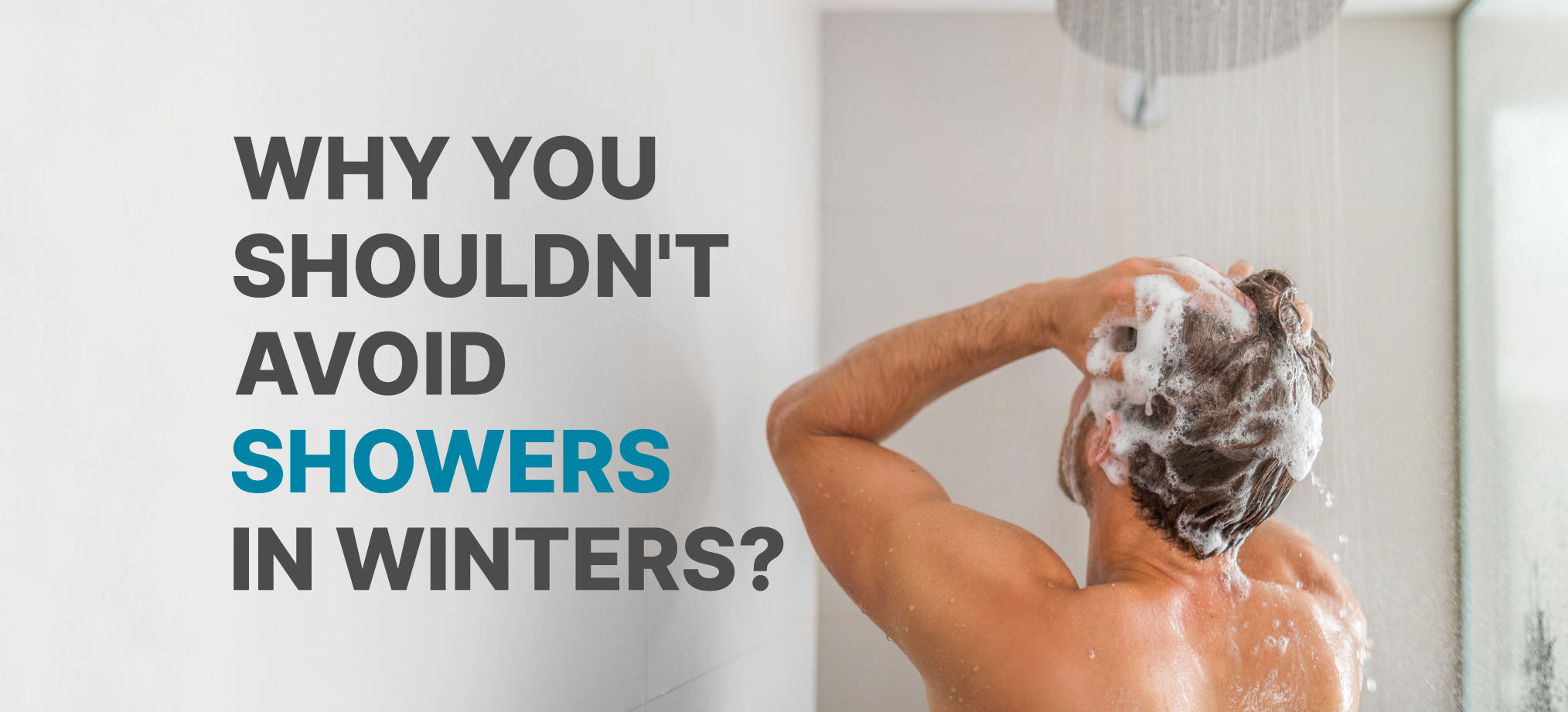General Health
5 Things You Should Never Do In Winter
4 min read
By Apollo 24|7, Published on - 31 January 2023, Updated on - 28 January 2024
Share this article
0
6 likes

The seasons each have their highs and lows. Given that winter has arrived and will likely stick around for a while, it's important to recognise that even seemingly harmless routines might pose serious risks during the season. Take a look at this list of basic habits.
1. Avoid Sunscreen
Many people do not protect themselves from sun exposure because they believe the sun is obscured by clouds and will not cause them any harm. But remember that clouds do not prevent direct sunlight from reaching our skin. Always remember, sunscreen is essential.
Why Use Sunscreen?
Sunscreen is useful because it blocks harmful ultraviolet (UV) radiation from the sun, including both UVA (which causes skin cancer and skin ageing) and UVB (which causes sunburns and skin cancer).
How Much Sunscreen To Use On The Face?
Sunscreen with an SPF of 30 or higher is recommended by most dermatologists. You need to put it on 30 minutes before going outside, and then every two hours while you're out there. The exposed parts of your body that need protection are your face, neck, chest, hands, and ear peaks.
Sunscreen is a simple guideline that you should always abide by Squeezing out two strips of sunscreen onto the index and middle fingers from the palmar crease to the fingertips provides a 2 mg/cm2 dose that is sufficient for the exposed areas. Check which sunscreen suits your skin here.
Skin Type | Type of Sunscreen |
Oily Skin | Gel-based sunscreens |
Dry Skin | Cream-based sunscreens |
Normal Skin | Lotion-based sunscreens |
Combination Skin | Water gel-based sunscreens |
Sensitive Skin | Mineral-based sunscreens |
Want to know more about sunscreen?
2. Taking Hot Showers
Sometimes, especially when it's chilly outside, a hot shower or bath sounds very good. Undoubtedly, our muscles feel less tension and our overall body feels more relaxed. However, hot water has the potential to deplete the skin of its natural oils, which can lead to a drying effect. It will give you dry, itchy, and flaky skin.
Washing your face and body with lukewarm water is preferable to using hot water because it is less drying. In addition to using a moisturising body wash and applying moisturiser when you get out of the shower, you can protect your skin from drying out and keep it supple by drinking plenty of water.
3. Avoiding Showers
Avoiding the hassle of a shower in the colder months can be tempting, but doing so has negative effects on your skin. As daily shedding is normal, so is the requirement for daily skin care. If you don't wash your skin regularly, you'll end up with a build-up of dead skin cells, dirt, and sweat causes unneeded skin problems like acne, and may aggravate pre-existing conditions like dermatitis, psoriasis, and eczema. Inadequate bathing habits can also lead to an imbalance of healthy and bad microorganisms on the skin.
Your daily routine should include a shower. You should check to see that the water is only warm, not hot. The most important thing is to drink water after every shower.
4. Wearing Socks While Sleeping
It's only natural that we'd all like to bundle up against the chilly weather. Putting on socks before bed is a common practice, but is it safe? No, socks should not be worn to bed at any time.
Wearing socks to bed might cause you to overheat, restrict your blood flow, and cause other uncomfortable side effects. Throw a blanket over it to keep your toes toasty. Alternatively, wrap your feet in a separate blanket.
5. Leaving Your Ears Uncovered
In cold weather, we cover our entire bodies with clothing, yet we often neglect to protect our ears. If you go outside in the winter with your ears exposed, you risk getting frostbite. If you leave your ears exposed in the winter, you run the danger of frostbite and ear infections.
A decrease in blood flow and an increased susceptibility to infection are two potential outcomes of cold weather's effect on the blood vessels in the ears. Also, the risk of infection is raised because the dry, itchy skin on the inside of the ear can't get enough moisture from the cold, dry air.
Therefore, it's best to wear mufflers or some other form of ear protection. Since heat can prevent both frostbite and other ear infections, wearing earplugs is a good idea while going outside in cold weather.
Are your ears troubling you this winter?
Final Note
That's it, folks; winter is here! To keep warm and cosy, we've all put on sweaters, vests, or other layers of clothes. On top of that, attempt to adhere to these five guidelines to keep skin, ear, and other body problems at bay!
Want to learn more about winter survival tips?
General Health
Leave Comment
Recommended for you

General Health
Green Tea VS Black Tea: Is It That Difficult To Pick The Side?
While green tea lowers cholesterol levels, black tea has anti-inflammatory properties. Read to know more about the benefits of both the tea.

General Health
Dos and Don’ts Before a Blood test
Most patients are recommended to undergo a blood test before any surgery. This is because blood tests can help the surgeon rule out the presence of any major blood disorder that can affect the surgery and its outcomes.

General Health
Thyroid Tests: Process, Preparations, And Results
Thyroid tests are crucial in evaluating thyroid function and detecting potential thyroid disorders. By understanding the various types of tests, knowing when to get tested, preparing adequately, and interpreting the results with professional guidance, individuals can effectively manage their thyroid health for overall well-being and vitality.
Subscribe
Sign up for our free Health Library Daily Newsletter
Get doctor-approved health tips, news, and more.
Visual Stories

Plant-based Foods That Are a Great Source of Iron
Tap to continue exploring
Recommended for you

General Health
Green Tea VS Black Tea: Is It That Difficult To Pick The Side?
While green tea lowers cholesterol levels, black tea has anti-inflammatory properties. Read to know more about the benefits of both the tea.

General Health
Dos and Don’ts Before a Blood test
Most patients are recommended to undergo a blood test before any surgery. This is because blood tests can help the surgeon rule out the presence of any major blood disorder that can affect the surgery and its outcomes.

General Health
Thyroid Tests: Process, Preparations, And Results
Thyroid tests are crucial in evaluating thyroid function and detecting potential thyroid disorders. By understanding the various types of tests, knowing when to get tested, preparing adequately, and interpreting the results with professional guidance, individuals can effectively manage their thyroid health for overall well-being and vitality.